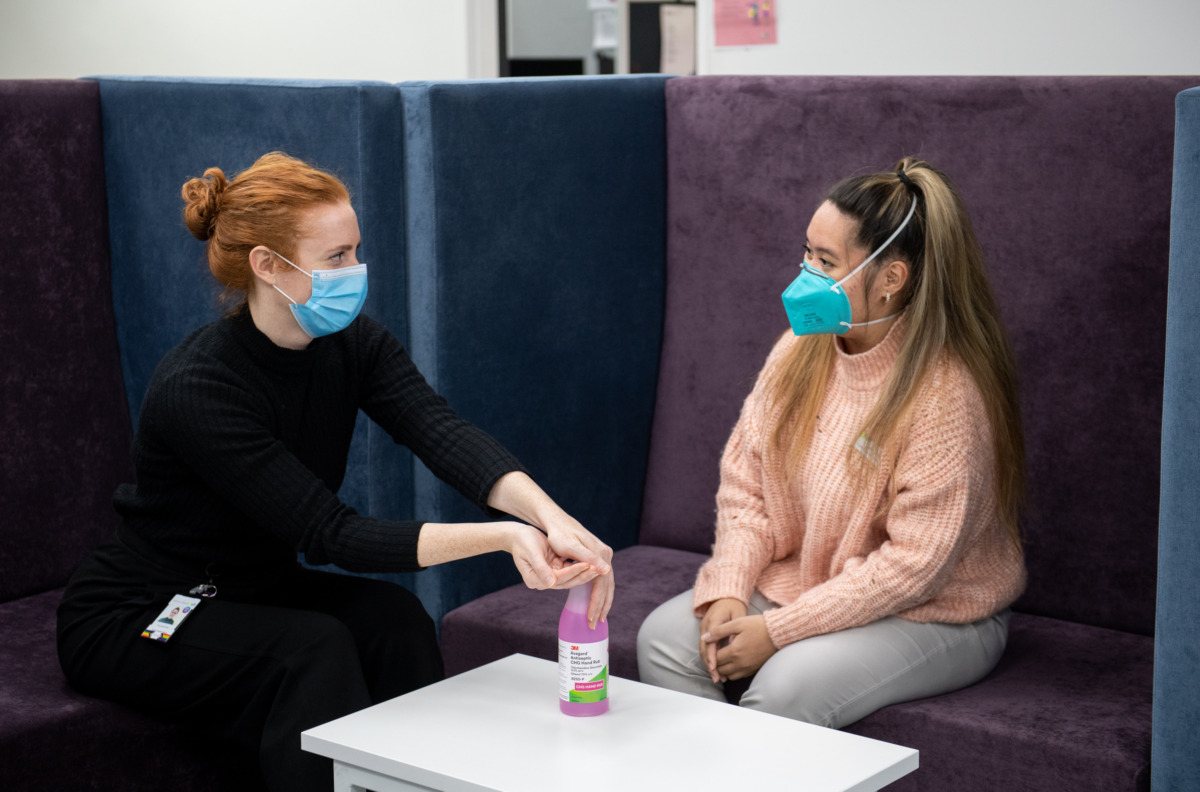

Influenza
‘Not just a bad cold’ –
reasons to get your
kids vaccinated
against the flu
It might surprise you to learn that of all infections for which vaccines are available, influenza is one of the leading causes of hospitalisation in children. Concerningly, fewer than one in five children under five years old have received a flu vaccine this year.
Dr Charles Alpren, Deputy Director of the Western Public Health Unit, said that 5000 cases of influenza were recorded in Victoria in May. Nearly 1000 of those were residents of the Western Public Health Unit’s catchment. And of those 1000 cases, almost 400 were in children under 10.
“Although the flu is sometimes thought of as just a bad cold, it can cause severe infections such as pneumonia, especially in young children under five and those with chronic medical conditions. During my time working in hospitals, I saw kids with influenza with severe breathing problems and high fevers who required intensive care. In the worst cases, the flu can be fatal,” Dr Alpren said.
Children aged between six months to five years are at higher risk than older children of developing severe influenza symptoms. Older children with conditions that affect breathing and immunity – such as severe asthma, cerebral palsy or congenital heart disease – are also at particular risk.
The Royal Children’s Hospital National Child Health Poll, which surveyed Australian parents on the flu vaccine, revealed that one in four parents (25%) are not sure about vaccinating their child against the flu this year, holding concerns about safety or efficacy of the vaccine.
“The flu vaccine is the most effective way to reduce the chance of your child becoming sick with influenza. It is safe, well established and the best protection against what can be a nasty infection that commonly requires several days off work or school, and can, in severe cases, need hospital care,” Dr Alpren said.
Vaccinating your child against influenza annually is important because the virus changes each year, and the vaccine is modified to anticipate the influenza strains likely to be circulating in the community, Dr Alpren said.
“Influenza is common and can be severe, so we strongly encourage everyone who is eligible to receive the vaccine each year. I’ve certainly had mine.”
Dr Alpren said that parents should get their children vaccinated against influenza as soon as possible so they are protected over the coming months when the flu virus is most common.
The flu vaccine is highly recommended for everyone over six months of age and the vaccine itself is free for children aged six months to less than five years and older children with medical conditions that increase their chances of severe infection. Flu vaccinations are available through GPs and pharmacists.
Fast flu facts for children
Children, particularly children aged between six months to five years old, are at high risk of developing severe influenza symptoms. Children with influenza can get severe complications such as pneumonia and may need to be admitted to hospital.
Influenza usually begins with a sudden fever and sore throat, muscle aches or low energy. Other symptoms can include headache, cough or noisy breathing, runny nose, nausea, vomiting and diarrhoea.
If you think your child has influenza, you should ensure your child has plenty of bed rest, encourage them to drink lots of fluids and use paracetamol or ibuprofen for pain or discomfort. Do not give aspirin to your child, as this can have serious side effects.
If your child becomes more unwell or is showing signs of dehydration you should see your GP urgently. If your child is having difficulty breathing, becomes very pale or blue around the lips or is drowsy and not responding to your voice, call 000.
The flu vaccine is the most effective way to reduce the chance of your child becoming sick with influenza and helps control the spread of disease. An annual flu vaccination will boost your child’s immunity and provide protection against the most recent flu strains.
The flu vaccine is safe. You cannot catch the flu from this vaccine. Unless you have a high fever or in other rare situations, it is safe to give – even if you have a cold. Side effects of the flu vaccine include pain and redness at the site of injection. Less commonly, children may develop a fever or aches and pains, which last one to two days. This is the body’s immune system creating protection against flu.



